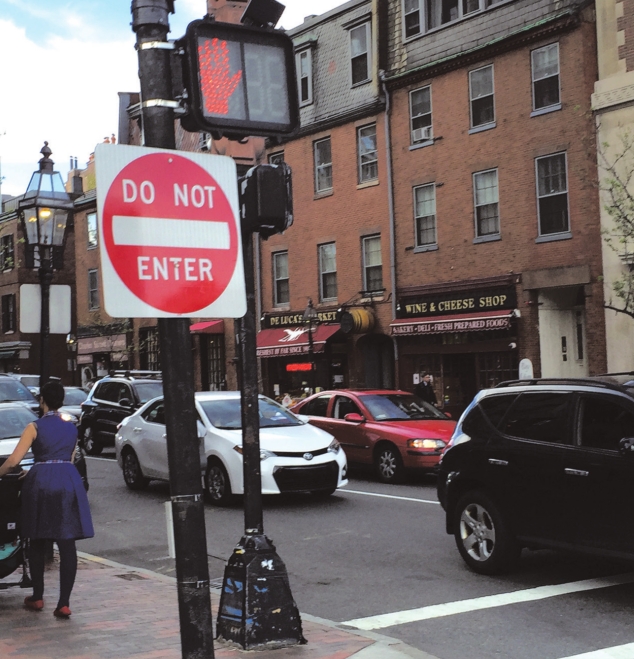
Charles Street was once bustling with rush hour traffic.
Horns blazed and exhaust plagued patrons as Greyhound busses and commuters rolled down the neighborhood street as though it were a highway. It had always been like this. Then one morning the street went quiet.
It happened in November 1982 according to Bob Matson, a longtime Beacon Hill resident and former zoning officer for then-Mayor Kevin White.
The Public Works and Transportation Departments worked together to rehabilitate the street. They fixed the sidewalk, removed graffiti and paved the road. Then about 4 pm on that Sunday, as Matson remembers, workers began turning the streetlights around.
By Monday morning, the direction of the street was reversed. Traffic trickled in from the north. The gridlock was gone. Residents could breathe again.
“I was the first to drive down the new street,” said Matson. “People had always complained about large motor vehicles passing through the neighborhood, so one weekend [White] just decided to take matters into his owns hands.”
Many praised the move as having transformed the neighborhood, ridding it of all the heavy-duty traffic that funneled from downtown Boston. Others called the decision audacious, citing the lack of any public process.
Tom Kershaw then-president of the newly formed Beacon Hill Business Association said that it showed White to be the “neighborhood mayor” that many thought he was.
Kershaw worked with White in the days leading up to the reversal to assess the traffic situation. He said White called him into his office one day after observing new trash barrels in the neighborhood.
“There weren’t adequate barrels in the neighborhood at the time,” said Kershaw. “White paid close attention to what went on in Beacon Hill, given that he lived there. So he found out that I was involved in some neighborhood changes, and he called me in to do a traffic report.”
Kershaw said there was overwhelming support from the community to do something about the gridlock.
“People complained for years,” said Jack Gurnon, owner of Charles Street Supply. “Charles Street was the main thoroughfare heading out of Boston. I think the change has been a benefit, speaking both as a merchant and a resident.” Although some claim the change adversely affected certain commercial interests, most maintain that the decision was a positive one.
Micho Spring, former deputy mayor under White, said that most of the resistance was within the bureaucracy itself.
“I remember the conversation,” said Spring. “I remember saying ‘Great, we need to process it.’ But he just said, ‘I’m just going to do it.’ It was quintessential Kevin White. And he was right, it made a huge difference.”